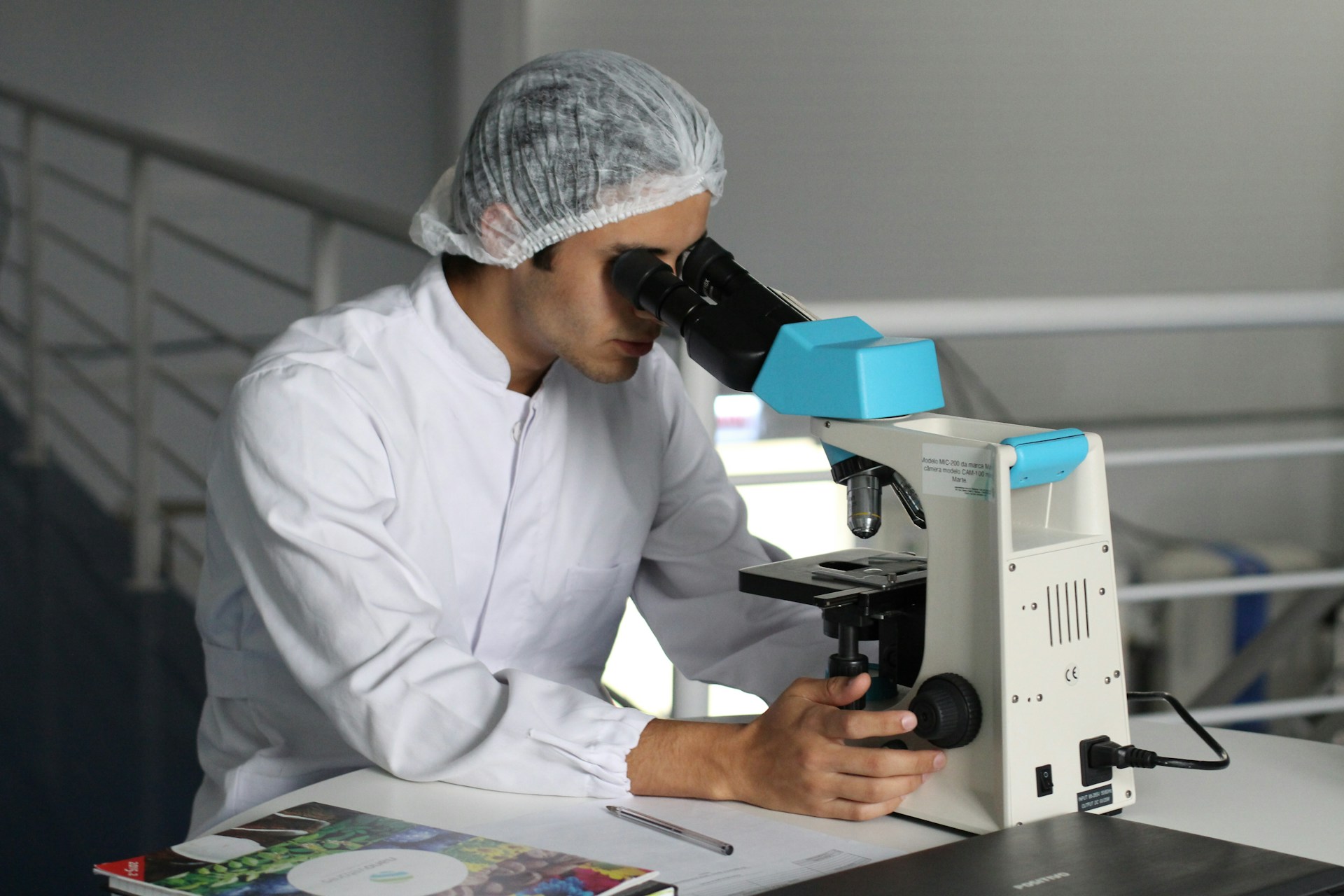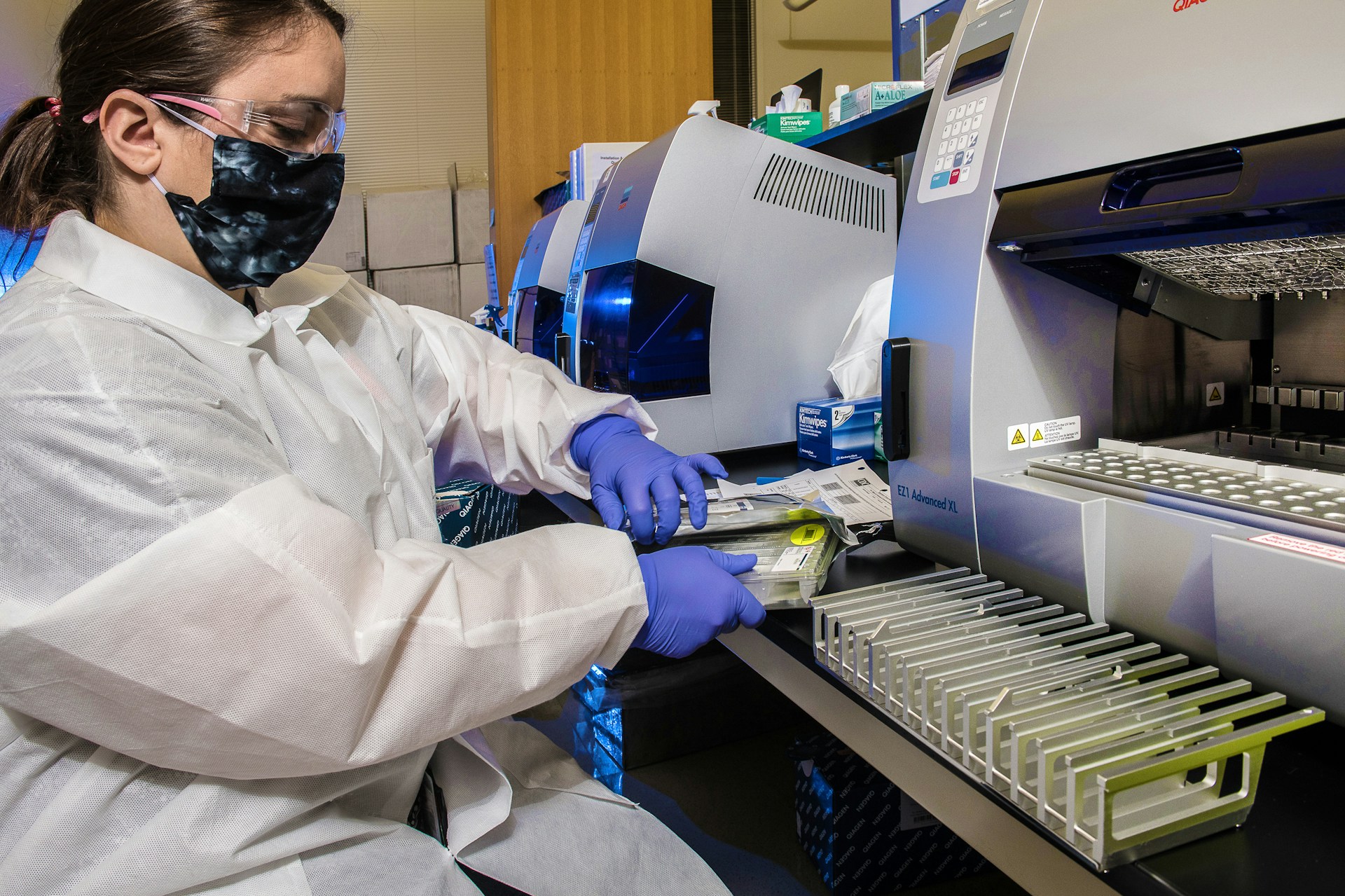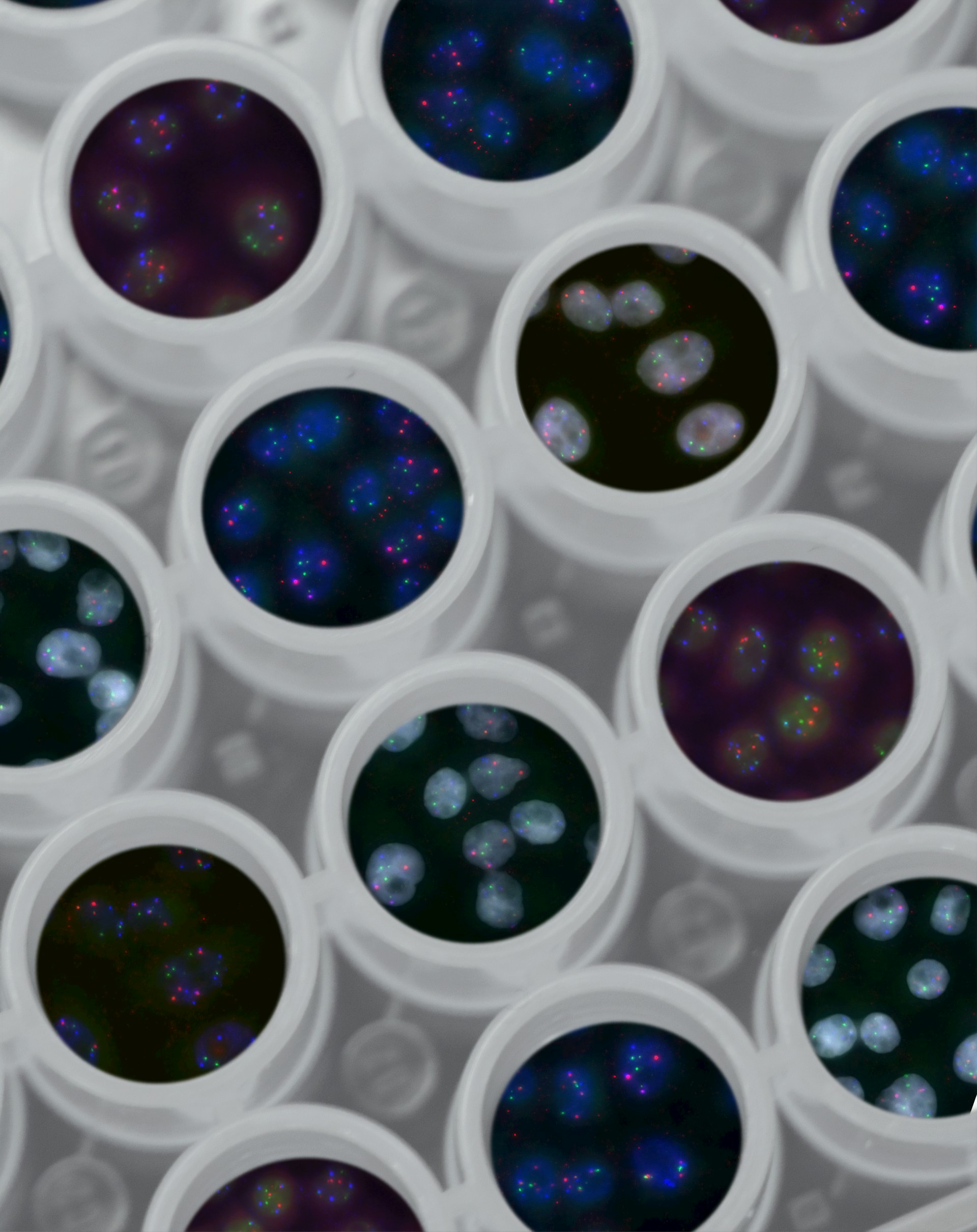Our Top 5 Medical Jobs in Rare Diseases
27 Mar, 20248 minutesIn healthcare, rare diseases are a beacon of both challenge and opportunity. Often overlooke...

In healthcare, rare diseases are a beacon of both challenge and opportunity. Often overlooked due to their low prevalence, rare diseases collectively impact millions worldwide, presenting unique challenges that require specialised attention and care. As such, the demand for skilled professionals in this sector has surged, with a growing need for expertise ranging from genetic counselling to cutting-edge research.
In this guide, we will explore the top 5 medical jobs in the rare diseases sector, delving into the roles and responsibilities, required skill sets and qualifications, as well as the average expected salary for various medical roles:
1. Clinical Trial Manager
First, let’s explore one of the most important medical jobs in the rare disease sector, a Clinical Trial Manager (CTM). CTMs drive advancements in the rare diseases sector. The primary role of a CTM within the rare diseases sector entails collaborating closely with researchers to design, plan, and execute clinical trials tailored to the rare disease sector while ensuring adherence to regulatory requirements. A CTM oversees essential operations such as patient recruitment screening and data quality and is the main communicator with stakeholders.
Over 6000 distinct rare diseases affect up to 36 million of the EU population. Due to the wide international impact of rare diseases on the population, it is essential for Clinical Trial Managers to ensure trials run smoothly and meet the requirements to drive innovation and ground-breaking treatments used to tackle rare diseases and reduce the negative impact on societal well-being, highlighting the significance of clinical trial jobs within the sector.
Responsibilities of a Clinical Trial Manager
So, let’s explore some of the most essential responsibilities involved in managerial clinical trial jobs in the rare disease sector:
- Designing and planning clinical trials, including outlining project timelines and budgets
- Ensuring clinical trials adhere to regulatory and ethical requirements, ensuring ongoing compliance throughout the whole process
- Overseeing operations of trial sites, supervising clinical trial coordinators, and ensuring accurate data collection
- Communicating with patient advocacy groups to raise awareness and increase talent acquisition
- Communicating with stakeholders and the team to address any concerns and update on clinical trial progress
- Managing clinical trial challenges such as limited talent pools, regulatory compliance and data quality
Clinical Trial Manager Skills
Here are the key skills necessary in clinical trial jobs, specifically for a Clinical Trial Manager:
- Clinical research knowledge, including elements of trial design, methodologies and regulatory requirements
- Project management skills are essential in planning, budgeting and managing project timelines
- Problem-solving ability is vital in addressing challenges associated with clinical trials
- Attention to detail is critical in making sure trials comply with regulatory requirements and ethics
- Strong communication skills in forming relationships with stakeholders and other members of the team
- Collaboration and teamwork with various teams within the rare disease sector, including clinical research teams and regulatory affairs specialists
Average Clinical Trial Manager Salary: £49,774
2. Regulatory Affairs Specialist
Regulatory Affairs Specialists’ have the primary role of ensuring safety and compliance with regulations, ensuring that products like drugs, medical devices and cosmetics meet regulation requirements before going on the market. Specialists must stay abreast of evolving regulations specific to rare diseases to prepare and submit correct regulatory applications to ensure safe and effective healthcare products and treatments, highlighting the importance of regulatory affairs jobs within the rare disease sector.
Responsibilities of a Regulatory Affairs Specialist
Below are some examples of the primary responsibilities involved in Regulatory Affairs jobs within the rare diseases sector:
- Staying abreast of the latest regulatory requirements within the rare disease sector, which may differ from more common diseases
- Advising product development teams on addressing regulatory challenges, study design and strategy
- Communicating with regulatory agencies and participating in meetings to address enquiries and concerns
- Ensuring post-market compliance by monitoring the safety profile of rare disease treatments once they’re on the market
- Preparing regulatory applications and writing technical documents for approval of new treatments tailored towards rare disease
Regulatory Affairs Specialist Skills
Take a look at some of the most essential skills Regulatory Affairs Specialists must possess when beginning medical jobs within this sector:
- Strong knowledge of the regulatory requirements of healthcare products about rare disease
- High attention to detail is essential in preparing accurate regulatory applications and ensuring compliance with vital standards
- Regulatory Affairs Specialists must be proficient in analysing and interpreting regulatory documents
- Great communication skills are vital in communicating with various members of the team, as well as stakeholders and regulatory agencies
- Project management skills are crucial in managing regulatory timelines
- Professionals must have foundational compliance management knowledge to ensure projects meet regulatory standards throughout the whole development cycle
- Strong problem-solving and the ability to cultivate effective solutions is essential in addressing any regulatory challenges that arise
Average Regulatory Affairs Specialist Salary: £48,998
3. Research Scientist
Next on our list of medical jobs are research scientists who play important medical roles in contributing to advancements in diagnosis and treatment within the rare disease sector. Their roles include genetic analysis, studying cellular pathways, and identifying targeted therapies. Ultimately, their goal is to improve diagnosis, treatment, and overall well-being for individuals affected by rare diseases.
According to research, rare diseases affect approximately 400 million people globally, yet only around 5% of rare diseases have approved treatments. This figure highlights the significance of Research Scientists and clinical research jobs and their importance in conducting ground-breaking research to drive the diagnosis and approved treatments for rare diseases.
Responsibilities of a Research Scientist
So, what are the key responsibilities of a Research Scientist in clinical research jobs?
- Conducting experiments to understand the underlying causes and mechanisms of rare diseases
- Identifying biomarkers for early diagnosis, prognosis, and monitoring of rare diseases
- Collaborating with stakeholders such as patients, clinicians, and pharmaceutical companies to advance research efforts
- Participating in drug discovery and development, including preclinical studies and clinical trials
- Analysing genomic data to identify genetic mutations associated with rare diseases
- Publishing research findings in scientific journals
- Engaging in patient advocacy efforts to raise awareness and support for rare diseases
- Ensuring compliance with ethical and regulatory requirements in research methods
Research Scientist Skills
Next, let’s explore the fundamental skills required to fulfil a successful Research Scientist career:
- Strong molecular biology and genetics expertise, including proficiency in PCR, sequencing, gene expression analysis, and genome editing
- Bioinformatics skills involving analysing large genomic datasets and interpreting genetic variants' relevance to rare diseases
- Cellular and molecular techniques and experience in cell culture, microscopy, flow cytometry
- Strong data analysis abilities to interpret experimental results, perform statistical analysis, and conclude complex biological data
- Critical thinking and problem-solving skills to design innovative research approaches and address scientific questions related to rare diseases
- Effective communication entails presenting research findings through scientific writing and presentations to the team
- Ethical conduct and regulatory compliance
Average Research Scientist salary: £36,510
4. Bioinformatics Specialist
Specialists in Bioinformatics jobs collaborate with clinicians and researchers to interpret complex genetic information using computational methods. This drives an understanding of rare diseases and guides efforts to develop tailored treatments, ultimately striving to improve outcomes for affected individuals.
Recent research suggests that up to 50% of undiagnosed rare disease cases may be due to a lack of biological knowledge of underlying genetic mechanisms. This highlights the importance of bioinformatics jobs, skills, and qualifications that candidates must possess to accurately diagnose and treat rare diseases.
Responsibilities of a Bioinformatics Specialist
The essential roles and responsibilities of specialist bioinformatics jobs within the rare disease sector include:
- Analysing genetic data to identify variations and potential disease-causing genes.
- Annotating genetic variants to understand their functional effects on proteins and biological pathways
- Identifying candidate genes and pathways involved in rare diseases
- Integrating genomic data with other omics data to gain comprehensive insights into disease mechanisms
- Contributing to the discovery of new disease-associated genes through analysis of genomic data
- Facilitating the identification of potential therapeutic targets.
- Developing and implementing bioinformatics tools tailored to rare disease research needs
- Collaborating with various teams to interpret findings and develop personalised treatment strategies
Bioinformatics Specialist Skills
Now that we have uncovered the key roles and responsibilities involved in bioinformatics jobs let’s explore some of the essential skills within the role:
- Proficiency in genomic data analysis
- Strong knowledge of bioinformatics tools and databases
- Ability to prioritise and interpret genetic variants
- Expertise in functional annotation of genetic variants
- Skill in gene and pathway analysis
- Experience in integrating multi-omics data
- Capability in rare disease gene discovery
- Expertise in therapeutic target identification
- Proficiency in tool development and implementation
- Strong collaboration and communication skills
- Adaptability to evolving research needs in rare diseases
Average Bioinformatics Specialist salary: £40,793

5. Genetic Counsellor
Finally on our list of medical jobs in the rare disease sector is genetic counsellor. Their role involves proficient genomic data analysis, extensive knowledge of bioinformatics tools, and the ability to interpret genetic variants. They possess expertise in functional annotation, gene and pathway analysis, and integrating multi-omics data, which are crucial for rare disease gene discovery and therapeutic target identification.
Aside from genomic analysis and data interpretation, they provide diagnostic support, develop and implement tools, and excel in collaboration and communication, adapting to evolving research, advancements and technologies in rare diseases.
Responsibilities of a Genetic Counsellor
The primary roles and responsibilities of a Genetic Counsellor in the rare diseases sector include:
- Conducting comprehensive genetic risk assessments by evaluating family medical histories and identifying potential hereditary factors
- Educating patients and families about complex genetic concepts, inheritance patterns, and the implications of genetic testing results
- Guiding genetic testing options, including pre-test counselling to discuss the purpose, procedure, and potential outcomes of testing
- Offering emotional support and counselling throughout the testing and addressing uncertainties
- Collaborating with various healthcare teams, including physicians and geneticists, to coordinate care and develop personalised treatment plans
- Contributing to research efforts by participating in clinical studies, collecting and analysing data to advance understanding and treatment of rare diseases
Genetic Counsellor Skills
Here are the crucial skills candidates must possess to pursue a career as a genetic counsellor in the rare diseases industry:
- Proficiency in interpreting complex genetic information, including inheritance patterns and disease mechanisms associated with rare genetic conditions
- Communication skills to effectively convey complex genetic concepts and test results to patients and families in a clear, compassionate manner
- Strong Empathy and Emotional Support to assist individuals and families facing the emotional challenges associated with rare genetic diseases.
- Genetic Testing Knowledge and familiarity with various genetic testing methodologies
- Committed to continuous learning and career development to stay updated on advances in rare disease research
- Ethical and cultural sensitivity to address diverse patient needs
- Problem-solving and critical thinking to analyse complex clinical scenarios and interpret genetic data
Average Genetic Counsellor salary: £41,604
Wrapping up Our Top 5 Medical Jobs in Rare Diseases
Clinical Trial Managers (CTMs) are essential leaders in rare disease clinical trials, ensuring regulatory compliance, overseeing patient recruitment, and driving innovation in treatment development. Regulatory Affairs Specialists also ensure product safety and compliance by navigating complex regulations, advising development teams, and facilitating treatment approvals.
Research Scientists advance rare disease research through experiments, biomarker identification, and collaborative approaches. Genetic Counsellors contribute expertise in genomic analysis, risk assessment, patient education, emotional support, and research collaboration, driving progress in rare disease diagnosis and treatment.
Bioinformatics Specialists collaborate with clinicians and researchers to analyse genetic data, aiming to understand and treat rare diseases. They identify disease-causing genes, discover therapeutic targets, and develop bioinformatics tools tailored to rare disease research needs.
The pivotal role of skilled professionals in the rare diseases sector cannot be overstated, as they drive research advancements and treatments to improve patient well-being.
Ready to Kickstart Your Career in the Rare Diseases Sector?
Our specialist recruitment agency possesses the expertise and outstanding resources to place top talent in medical roles in the rare disease sector, ranging from regulatory affairs jobs to clinical research jobs.
Whether you are seeking entry-level roles or aiming to embark on a senior-level career, our unmatched talent pools and broad networks enable us to source the most suitable opportunities across various medical jobs.
Contact us today to discuss your requirements.










